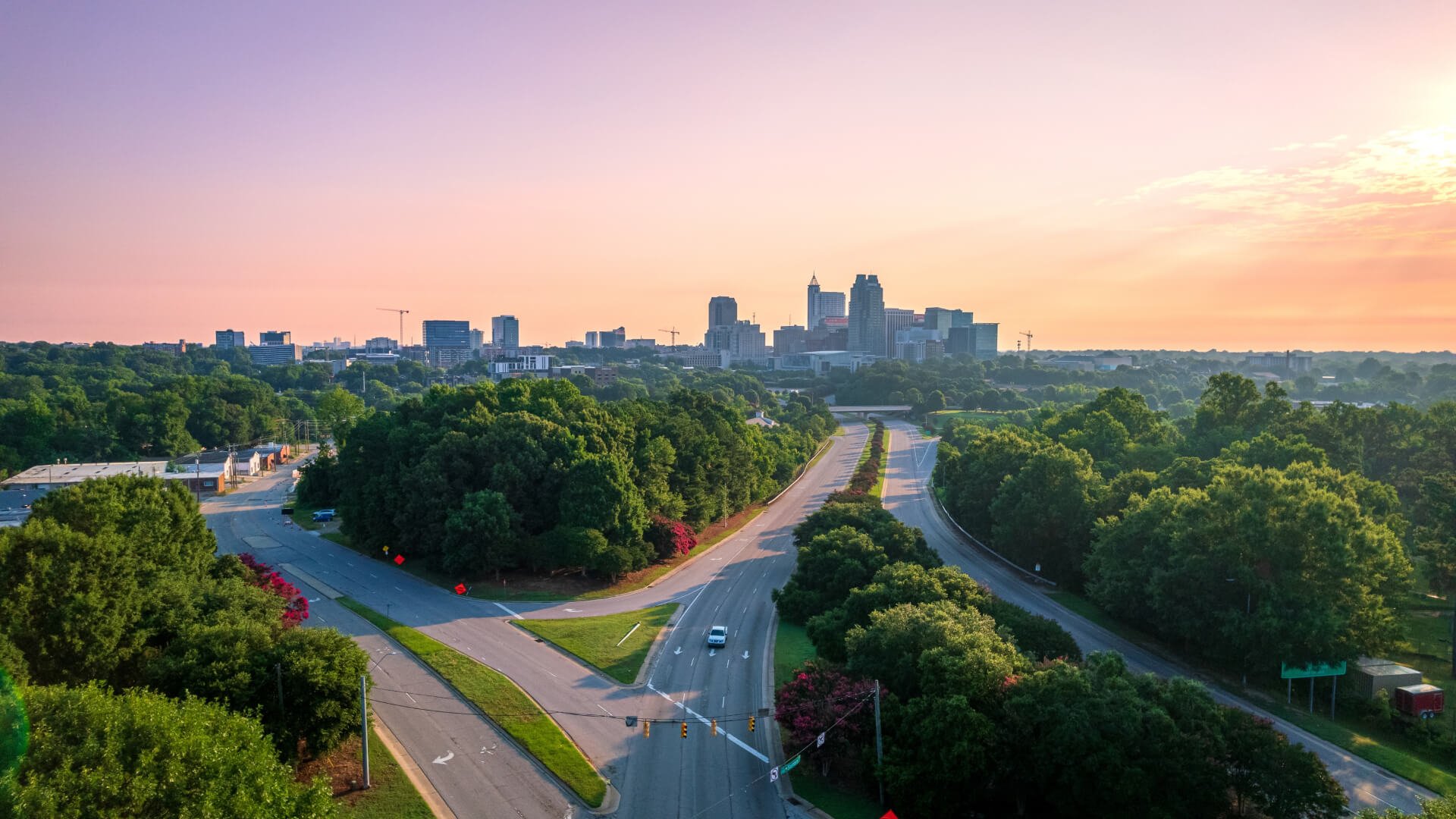Raleigh, North Carolina—often dubbed the “City of Oaks”—continues to be one of the Southeast’s most dynamic housing markets. With its blend of Southern charm, booming tech sector, and top-tier universities, Raleigh remains a magnet for homebuyers and investors alike. But what’s really happening with property values in 2025?
Current Market Snapshot
As of mid-2025, the median home sale price in Raleigh is approximately $450,000, reflecting a 5.9% increase year-over-year. While prices have climbed steadily, the pace has moderated compared to previous years, signaling a shift toward a more balanced market.
Median price per square foot: $238
Average time on market: 31 days
Sale-to-list price ratio: 98.2%
Typical home value (Zillow Index): $443,820, down 2.5% from last year
Neighborhood Highlights
Raleigh’s diverse neighborhoods show a wide range of property values:
Neighborhood | Median Home Value |
|---|---|
Glenwood | $1,260,707 |
Five Points | $823,498 |
Mordecai | $707,291 |
East Raleigh | $415,540 |
Falls of Neuse | $627,053 |
Luxury enclaves like Glenwood and Wade offer high-end living, while areas like East Raleigh provide more affordable options for first-time buyers.
Market Trends & Buyer Behavior
Raleigh’s housing market remains competitive, with many homes receiving multiple offers. However, buyers now have slightly more breathing room than in the frenzied post-pandemic years. Interestingly, 70% of buyers are choosing to stay within the metro area, while others are relocating from cities like Washington, D.C., and New York.
Compared to nearby cities:
Durham: Median home price is around $410,000, with slightly faster appreciation rates and a growing biotech sector attracting new residents.
Charlotte: Larger and more urban, Charlotte’s median home price is approximately $470,000, but inventory remains tighter and competition fiercer.
Raleigh’s relative affordability and quality of life make it a strong contender for buyers seeking value without sacrificing amenities.
What’s Driving the Market?
Several factors continue to influence Raleigh’s property values:
Tech & Education: Proximity to Research Triangle Park and universities like NC State boosts demand.
Quality of Life: Raleigh offers a lower cost of living than many major metros, with a vibrant cultural scene and access to nature.
Inventory Levels: With over 2,000 homes for sale and nearly 700 new listings in July alone, supply is slowly catching up to demand.
LOOKING AHEAD
While a dramatic drop in prices is unlikely, experts forecast modest growth and market stabilization through 2026. Rising interest rates and economic shifts may temper demand, but Raleigh’s fundamentals remain strong.
FINAL THOUGHTS
Whether you're buying, selling, or investing, Raleigh’s real estate market offers a compelling mix of opportunity and resilience. With property values holding firm and demand steady, the City of Oaks continues to shine as a real estate hotspot in the Southeast.
Ready to make your move? Let's connect today to explore your options and take advantage of Raleigh’s thriving market.


